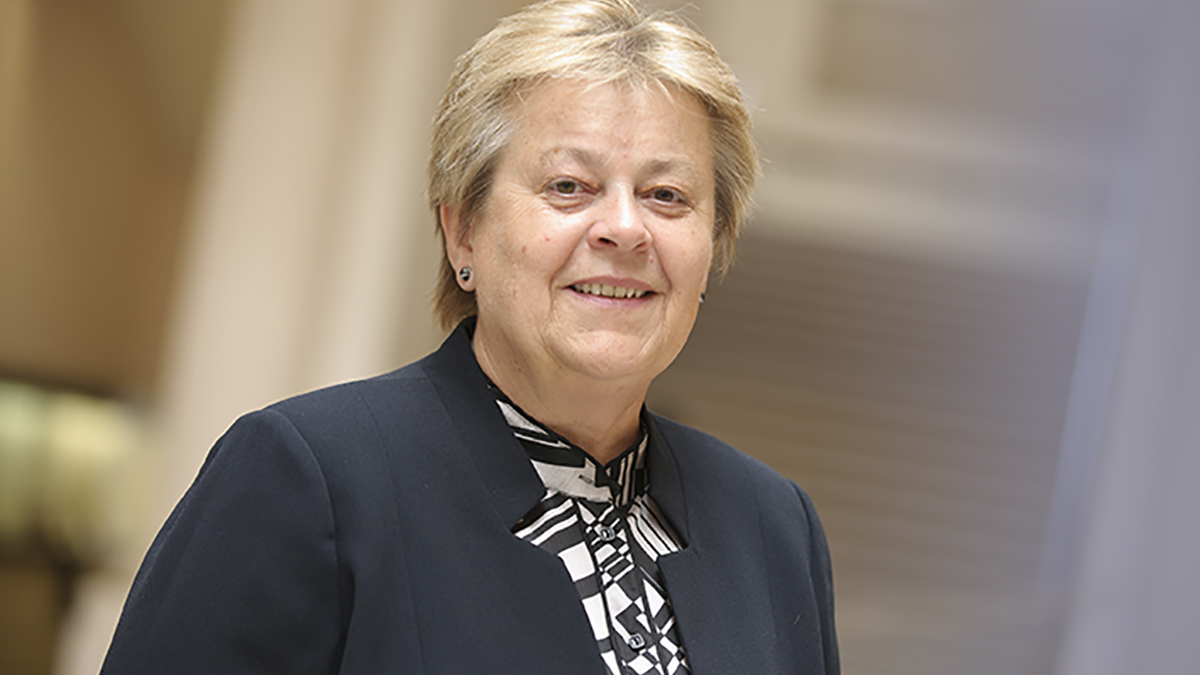Risk professionals must confer on climate finance: Airmic CEO
‘A more coherent strategy of “greening” the whole economy involving all industries is need,’ Airmic chief executive, Julia Graham, says
Association of Insurance and Risk Managers in Industry and Commerce chief executive calls for collaboration between insurers, brokers, insurance buyers and risk professionals on climate initiatives
More dialogue is needed between insurers, brokers, insurance buyers and risk professionals to ensure climate initiatives have the right intended consequences on the global economy and that progress towards net zero can be made, according to the chief executive of the Association of Insurance and Risk Managers in Industry and Commerce (Airmic).
In an interview with Insurance Day, Julia Graham says risk professionals have been helping to steer their organisations through the myriad of risks and opportunities related to climate change and the green economy.
“Airmic has been able to tap on its unique convening power in the risk and insurance industry to foster more collaboration in the insurance industry on how to deal with climate risks and on the measurement, management and financing of those risks – such as through dialogue, roundtables and collaborative projects,” Graham says.
The UK-based, not-for-profit organisation advocates for the interests of corporate insurance buyers and risk managers. It conducted a survey last year where 65% of respondents said they are involved in their organisation’s climate transition plans, something Graham says underscores “the growing role risk professionals are playing in ensuring the comprehensive success of the climate transition”.
At the same time, she adds, climate change is probably the biggest challenge for the insurance industry. “Without radical change, insurance may become unaffordable for many and parts of the planet uninsurable or uninhabitable,” she says.
Climate goals compromise
Insurance coverage for transition-related risks is insufficient at present to meet demand, forcing firms to choose between maintaining competitiveness and meeting their climate goals. Graham suggests how to overcome this challenge.
“By declining to insure carbon-intensive industries, insurers could be offloading the coverage of those industries to smaller insurers that may be less well equipped to address any fallout from climate risks. The result is record-breaking natural catastrophe losses, which are climate change-induced, are now impacting insurers,” she says.
What is needed, she adds, is a more coherent strategy of “greening” the whole economy involving all industries, where carbon-intensive industries are offered more support in managing the transition risks to a green economy.
Graham continues: “Governments could do more to set the tone here and make use of economic incentives. Meanwhile, the insurance industry needs urgently to seek new or alternative sources of capital, especially as a form of reinsurance in catastrophe bonds and other lines, and through private equity investments in life and annuities businesses.”
Nearly 40% of respondents to the 2024 Airmic survey said air pollution is a protection gap for their organisations in terms of insurance coverage for climate risks, up from 21% in May 2023 when Airmic members were last polled on the same question. Graham highlights that, while the respondents reported pollution is a standard exclusion under most policies, they were not fully aware about liability policies that would respond to allegations of or actual air pollution caused by their organisations, other than if made directly against their directors and officers.
“By declining to insure carbon-intensive industries, insurers could be offloading the coverage of those industries to smaller insurers that may be less well equipped to address any fallout from climate risks. The result is record-breaking natural catastrophe losses”
Julia Graham
Airmic
“The issue also is buyers think they have cover but there may be caps, or insurers may not always be clear on the exceptions. This is where we need to educate ourselves and our organisations, so everyone is clear on what is covered,” she says.
Graham refers to the estimate that transforming the global economy to achieve net-zero emissions by 2050 will cost $9.2trn in annual average spending on physical assets. That works out to be $3.5trn more than present levels of spending, she says, or half of global corporate profits and one-quarter of total tax revenue.
Lack of clarity
“Yet a majority of respondents to Airmic’s surveys since 2023 say they lack clarity about the budget their organisations have set aside for their transition plans,” Graham stresses.
In this regard, she continues, the guidance from the Taskforce on Climate-related Financial Disclosures recommending the transition plans of organisations describe the supporting financial plans, budgets and related financial targets, such as the amount of capital and other expenditures supporting decarbonisation strategy, has provided a “very relevant steer” for risk professionals and their organisations.
Graham concludes: “Risk professionals are well placed to bring synergy between insurers – large corporations that are making some of the most consequential climate commitments in the world today – and the businesses and organisations they help to steer. The profession can play a significant role on behalf of the businesses they serve to facilitate the creation of a global architecture on climate finance.”



